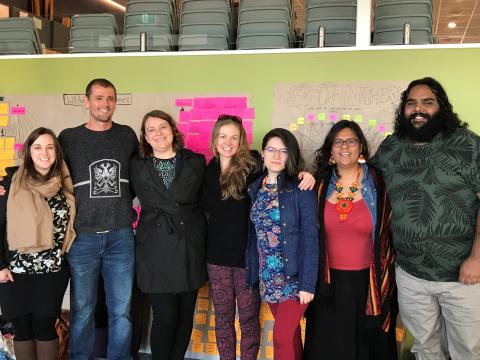WSAA is pleased to announce that the recipients of the inaugural WSAA innovation seed funding of $5,000 was awarded to The Native Water Network.
The inaugural funding was announced as part of the Water Innovation Lab, which took place in Melbourne in May. Their innovation aims to resolve the problem of the absence of traditional knowledge and people in mainstream water governance and management decisions, often resulting in biased policies and potentially poor decisions.
The team have a long-term plan, with the first step to hold a water clean-up day where the indigenous community can share their water stories, knowledge and connection to water with water industry professionals who can share their industry knowledge with indigenous communities. This two-way exchange can raise awareness of pathways and careers for indigenous people in the water sector and broaden the knowledge of those already in the sector by learning from indigenous communities to improve decision making based on traditional and non-traditional sources of knowledge and information.
The water clean-up day will be held concurrently in countries including Australia, Canada and the United States and will include knowledge transfer between indigenous communities from different locations around the world through an online platform.
Through their innovation, The Native Water Network team are contributing to the future skills of the water sector, making the sector more enticing for future entrants, and bringing together communities from many different backgrounds to connect to water and contribute to solving long-term industry challenges.
Congratulations to The Native Water Network: Iztac Metzli (USA), Marleen Villanueva (USA), Liam Sibly (Australia), Kristy Franks (Canada), Jordan Smith (Australia) and Kelly Hill (Australia).
The Water Innovation Lab is a global initiative of the Canadian NGO Waterlution, and was brought to Australia for the first time last week. The evnt saw close to 50 participants, from engineers, to entrepreneurs, to graduate students and researchers, all between the ages of 20-35 yrs, coming from over 10 countries to Melbourne from May 19-25, with one goal: creating collaborative innovations that respond to the most pressing water challenges in Australia and the region.

